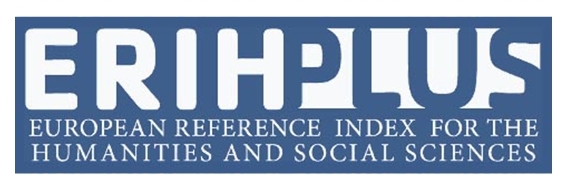Legal abortion in Buenos Aires province. The inaccessibility of women to the health system
DOI:
https://doi.org/10.24215/24690333e024Keywords:
abortion, women, healthAbstract
In Argentina, the voluntary interruption of pregnancy is punishable. There are causes legislated in the Criminal Code by which a woman can legally resort to an abortion: in order to avoid endangering her health or life and a pregnancy resulting from rape. Although this legislation is in force since 1921, women who demand compliance with this right are victims of institutional violence. This article seeks to reflect on the barriers to access to legal abortion in the Buenos Aires health system, understanding the gender inequalities present in health institutions and services.Downloads
References
Amnistía Internacional (2017). El registro del aborto legal en el sistema de salud argentino. Londres, Inglaterra. Recuperado de https://amnistia.org.ar/wp-content/uploads/delightful-downloads/2017/05/04-Registro-de-Aborto-no-punible.pdf
Barrancos, D. (2012). Mujeres en la sociedad argentina. Una historia de cinco siglos. Ciudad Autónoma de Buenos Aires, Argentina: Sudamericana.
Borrell, C. y Artazcoz L. (2008). Las desigualdades de género en salud: retos para el futuro. Revista Española de Salud Pública, 82(3), 245-249. Recuperado de http://scielo.isciii.es/scielo.php?script=sci_arttext&pid=S1135-57272008000300001
Bourdieu, P. y Wacquant, L. (1995). Respuestas por una antropología reflexiva. Ciudad de México, México: Grijalbo.
Comes, Y. y Stolkiner A. (2005). «Si pudiera pagaría». Estudios sobre la accesibilidad de las mujeres usuarias pobres del AMBA a los servicios asistenciales estatales. XII Anuario de Investigaciones, 12(1), 137-143. Ciudad Autónoma de Buenos Aires, Argentina: Facultad de Psicología, Universidad de Buenos Aires. Recuperado de http://www.scielo.org.ar/scielo.php?script=sci_arttext&pid=S1851-16862005000100013
Di Liscia, M. (2012). Cuerpos expuestos y sin derechos: Los abortos no punibles en Argentina. La Aljaba, 16(1). Recuperado de http://www.scielo.org.ar/scielo.php?script=sci_arttext&pid=S1669-57042012000100004&lng=es&tlng=es
Gomes, R. y Couto, M. (2014). Relaciones entre profesionales de la salud y usuarios/as desde la perspectiva de género. Salud Colectiva, 10(3), 353-363. Recuperado de http://www.scielo.org.ar/scielo.php?script=sci_arttext&pid=S1851-82652014000300006
Gómez Gómez, E. (2002). Género, equidad y acceso a los servicios de salud: una aproximación empírica. Revista Panamericana de Salud Pública, 11(5/6), 327-334. Recuperado de http://www.scielosp.org/scielo.php?pid=S1020-49892002000500008&script=sci_abstract&tlng=es
Hamilton, G. (2001). Exclusión de la protección social en Salud en Argentina. Tres enfoques metodológicos. En Jornadas Gino Germani. Ciudad Autónoma de Buenos Aires, Argentina: Instituto de Investigaciones Gino Germani.
Irrazabal, M. (2015). La religión en las decisiones sobre aborto no punible en la Argentina. Estudos Feministas, 23(3), 735-759. Recuperado de http://www.scielo.br/scielo.php?script=sci_arttext&pid=S0104-026X2015000300735&lng=en&nrm=iso
Laclau, E. y Mouffe, Ch. (2010). Hegemonía y estrategia socialista. Ciudad Autónoma de Buenos Aires, Argentina: Fondo de Cultura Económica.
Maffía, D. (2006). «Aborto no punible. ¿Qué dice la ley argentina?». En S. Checa (Comp.), Realidades y coyunturas del aborto. Entre el derecho y la necesidad (pp. 149-157). Ciudad Autónoma de Buenos Aires, Argentina: Paidós.
Ministerio de Salud de la Nación (2015). Protocolo para la atención integral de las personas con derecho a la interrupción legal del embarazo. Ciudad Autónoma de Buenos Aires, Argentina. Recuperado de http://www.msal.gob.ar/images/stories/bes/graficos/0000000875cnt-protocolo_ile_octubre%202016.pdf
Organización de las Naciones Unidas (2016). Observación general núm. 22 (2016), relativa al derecho a la salud sexual y reproductiva (artículo 12 del Pacto Internacional de Derechos Económicos, Sociales y Culturales). Nueva York, Estados Unidos. Recuperado de https://digitallibrary.un.org/record/832961/files/E_C.12_GC_22-ES.pdf?version=1
Ramón, M. (2011). «El fenómeno de inaccesibilidad al aborto no punible». En P. Bergallo (Comp.), Aborto y justicia reproductiva (pp. 137-200). Ciudad Autónoma de Buenos Aires, Argentina: Editores del Puerto.
Rosenberg, M. (2010). Sobre el aborto no punible. Congreso de Países del MERCOSUR sobre Bioética y Derechos Humanos-Derecho a la Salud. Ciudad Autónoma de Buenos Aires, Argentina: Secretaría de Derechos Humanos, Ministerio de Justicia. Recuperado de http://www.abortolegal.com.ar/wp-content/uploads/2011/01/trabajo-marta-rosenberg.pdf
Published
How to Cite
Issue
Section
License
Copyright (c) 2018 Marianela García

This work is licensed under a Creative Commons Attribution-NonCommercial-ShareAlike 4.0 International License.
Current policy since 2019
The acceptance of an original by the journal implies the non-exclusive transfer of the patrimonial rights of the authors in favor of the publisher, who allows the reuse, after its edition (postprint), under a Creative Commons License Attribution-NonCommercial-ShareAlike 4.0 International.
According to these terms, the material can be shared (copy and redistribute in any medium or format) and adapted (remix, transform and create another work from the material), provided that a) the authorship and the original source of their publication (magazine and URL of the work) are cited, b) is not used for commercial purposes and c) the same terms of the license are maintained.
The assignment of non-exclusive rights implies that after postprint in Con X authors may publish their work in any language, media and format; in that case, it is requested that they signal that the material was originally published by this journal.
Assignment also entails the authors’ authorization for the work to be collected by SEDICI, the institutional repository of the Universidad Nacional de La Plata, and for it to be indexed in the databases that the publisher thinks appropriate for enhancing the visibility of the published work and its authors.
In addition, the journal encourages authors to submit their works to other institutional and thematic repositories after their publication in Con X, under the assumption that offering society unrestricted access to scientific and academic production contributes to a greater exchange in global knowledge.








.jpg)

.png)



.png)





















